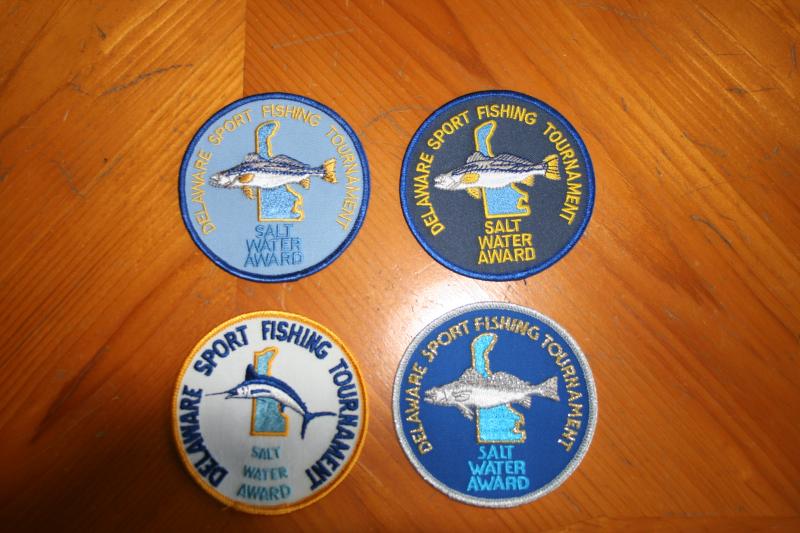Fishing citation patches to be replaced with pins
The Delaware Fishing Citation Program will be getting a new look in 2017. The current practice of giving out patches will be replaced with a pin. There will be four different pins: one for a saltwater catch, one for a saltwater release, one for a freshwater capture and another for a freshwater release. The paper citations that can be framed will continue unchanged. Feedback from anglers and looking at states that already use pins instead of patches has shown the popularity of the pins is much higher than the patches. The photos of the pins presented at the Advisory Council on Recreational Fishing Funding appeared to be very nice. I personally think anglers will be proud to wear them on their fishing hats or shirts.
Two fish species were added to the list of those eligible for citations. In saltwater, cobia will now qualify for a citation and a pin if it weighs 45 pounds, or for a release citation and pin if it measures 48 inches.
The choice of a new species for freshwater fish is quite interesting. The snakehead is an invasive species, and the Fish and Wildlife people would like to gather as much data as possible on where it is found in Delaware. To this end, they are adding this species to the list of citation-eligible fish. A citation and pin will be awarded to anyone who catches and kills a snakehead regardless of the size or weight. The keyword here is kills. There will be no award for releasing a snakehead, as the fisheries folks want to remove them from state waters.
Another item that passed the council was replacing the lighting at the Lewes Boat Ramp. Currently, the electric bill for the lights is about $2,500 per year. Replacing the lamps adds about $1,000 to the yearly bill. The new LED lamps will cost about $26,000, but they last at least 10 years and will save a considerable amount on the annual electric bill. In addition, these LED lights can be focused to bring more light to the ramps, where boaters have complained the lighting is very poor.
Beginning in 2017, the State of Delaware will institute a volunteer fish-tagging program. This type of program has been very successful in Virginia, providing good data to fishery managers.
At some point over the winter, classes to teach recreational fishermen how to properly tag and release saltwater fish will be held in New Castle, Kent and Sussex counties. Once anglers have been properly trained, they will be issued tags for their use. After tagging a fish, the data will be entered online either from a home computer or from a smartphone. This will save a lot of paperwork and cut the cost of the program.
One item that has been on the agenda for a long time is the boat ramp for Millsboro Pond. The bid for the engineering work is finally out, and that is a good first step. Once the engineering plan is back, work on permitting can begin.
One interesting fact, which we didn’t know about, is where the ramp is located. Since the pond belongs to the Town of Millsboro, we thought the ramp was also within town limits. It’s not. The ramp is in Sussex County outside of Millsboro. This adds one more permit needed before construction can start.
Right now the plan is to completely redo the parking lot and the ramp in order to make boat launching easier and provide more space for cars/trucks and trailers. Right now, the parking lot has three spaces, and the hope is to double that number. A floating dock alongside the ramp is also in the plans.
If there is one thing you learn when you serve on government advisory councils, it is that the time it takes between when a good idea is presented and finally accomplished can be very long.
Fishing report
Seabass and tog remain the best bet as all of us wait for the big rockfish to move down from New Jersey. Boat limits for both species are common, but as always, the wind has cancelled many trips.
On Monday evening, I went to Indian River Inlet and was encouraged by what I saw. The current was running out when I arrived, and the tide was as low as I have ever seen due to the full moon.
Once the water began to run in, there were tons of bunker and mullet splashing and jumping on the surface. Unfortunately, there were no big rockfish and blues present to take advantage of this excellent buffet. I do believe with all that bait available, those two fish will be here at some point in time.
























































